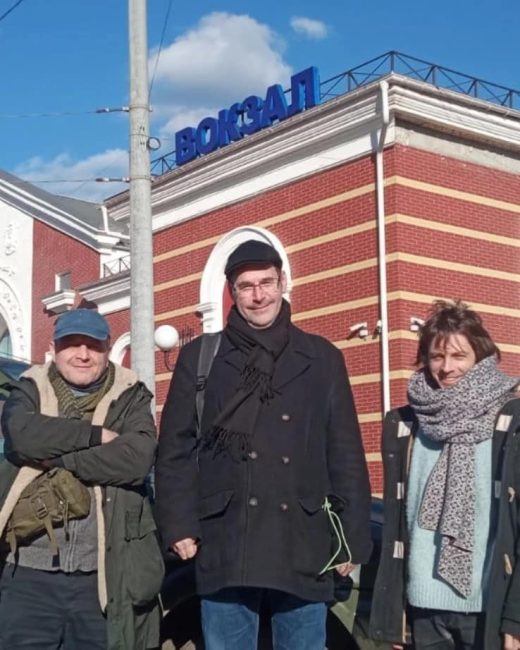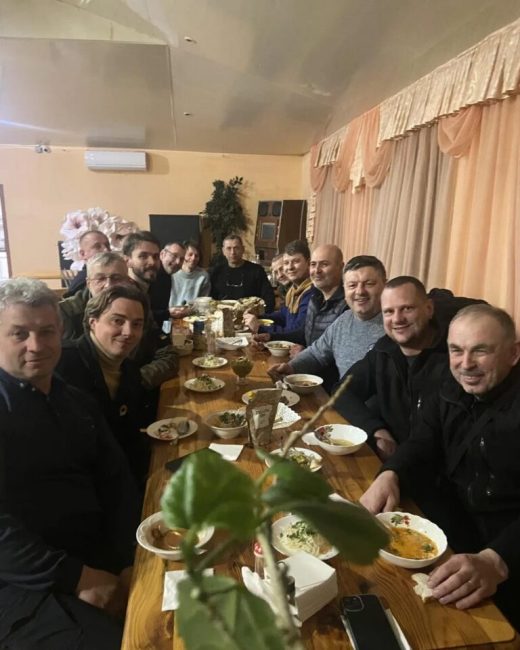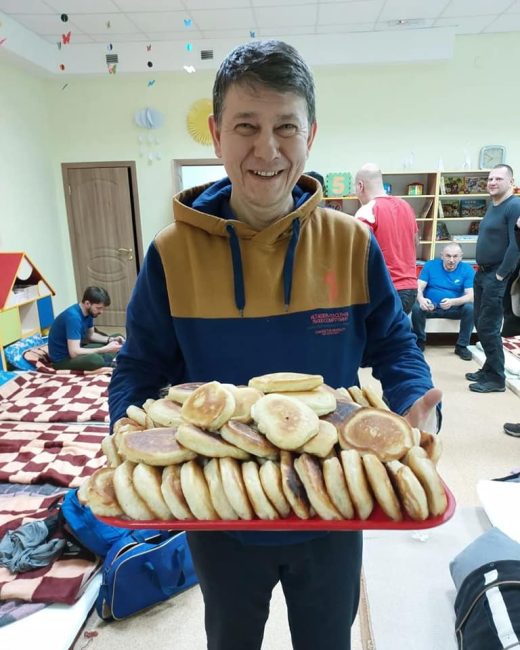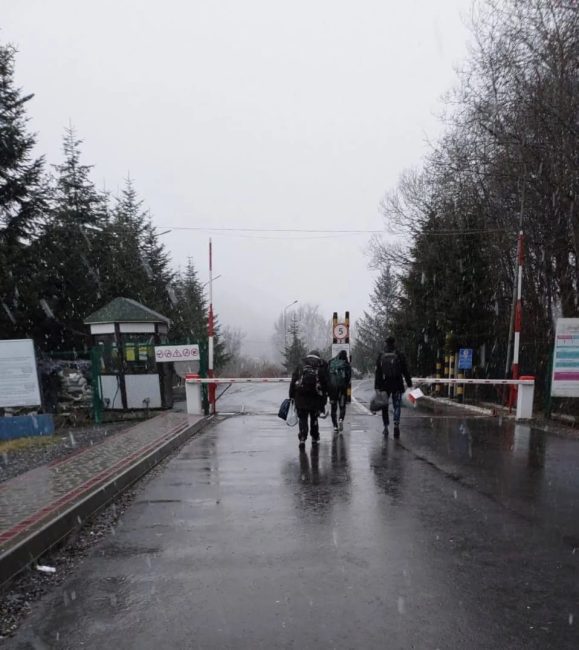2023
Thursday, March 2
The first day of our journey to Ukraine passed with little excitement or drama, just as we expected. We crossed both the Serbian and Hungarian borders without any issues, and it seems to have gone much smoother and faster than last year. That must be a good sign. We are currently in Zahony, a Hungarian town near the border crossing with Ukraine. We will spend the night here to enter Ukraine in the morning, when the central border office in Kyiv is open. This is necessary to allow us, as Serbian citizens, entry into the country. The reason: a significant number of our compatriots, captivated by reckless propaganda and fantasies about Russian-Serbian friendship, despite laws explicitly prohibiting it, participate in volunteer forces on the side of Russia and, like flies, die in a foreign land for the benefit of another, highly aggressive country, participating in a war they have nothing to do with. Therefore, Ukrainian border authorities need to conduct additional checks before allowing us, as holders of our passport, to proceed. Last year, they even checked our phones. We will update you in the morning on the situation at the border crossing with controls. Shortly after, we will arrive in Uzhhorod, where we will meet again with our friend Andriy Lyubka, a Ukrainian writer and translator. After transferring the humanitarian aid from the van to off-road vehicles and loading four hundred books destined for Ukrainian refugees in Serbia into the van, we will continue our 2,000-kilometer journey to Blizhnyukiv in the far east of this vast country. Good night from Hungary.

Friday, March 3
We left Zahony for the Hungarian-Ukrainian border at 8:00 AM Hungarian time and 9:00 AM Ukrainian time. We crossed both sides of the border relatively easily, just as we had expected, though we were met with the familiar Ukrainian procedure – fingerprinting all ten fingers, photographing from the front and profile – before we could head towards Uzhhorod. There, we met with Andriy and then with others who would be joining us on this long journey.
We are traveling in a convoy of ten SUVs that Andriy personally purchased with donations from citizens and friends both from Ukraine and other countries. These vehicles will be donated to the Ukrainian army on the front lines in the east of the country. We unloaded the humanitarian aid for the social center in Blizhnyukiv from our cargo vehicle and transferred it to the convoy vehicles, then headed to the central post warehouse in Uzhhorod where we loaded four hundred books destined for the Ukrainian community in Serbia into our van. These books have now set off for Belgrade.
We face a long journey east, departing at 8:00 PM. We will drive non-stop for 24 hours until we reach the Blizhnyukiv district, located between Kharkiv and Donbas, right on the front line. There, we will deliver the collected humanitarian aid and spend the night in a kindergarten that has kindly provided accommodation. Early the next morning, we will continue towards Donbas, where the convoy vehicles will be handed over to various Ukrainian military units. We will travel across the entire Donbas region to Zaporizhzhia before returning to Uzhhorod in the far west of Ukraine. In total, we will cover 3,200 kilometers and during all these days and nights on this journey, we will sleep only once – at the aforementioned kindergarten in Blizhnyukiv. So now we are using the remaining hours before departure to rest and gather strength for the long and uncertain journey into war-torn parts of Ukraine.
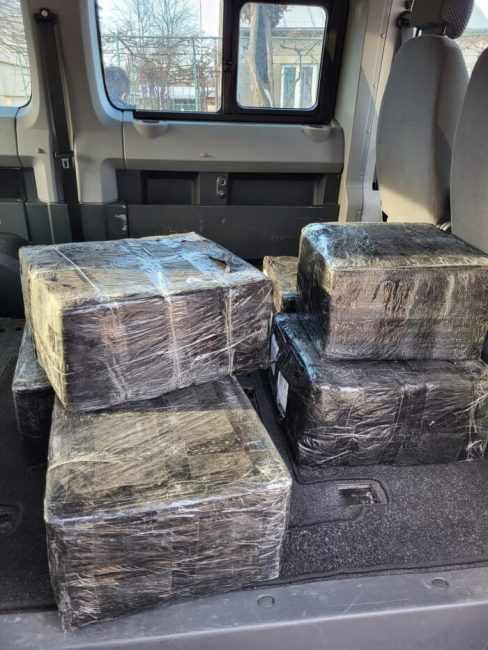
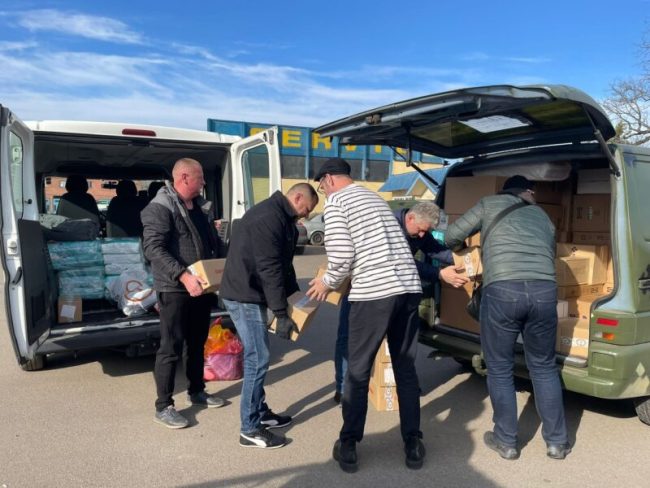
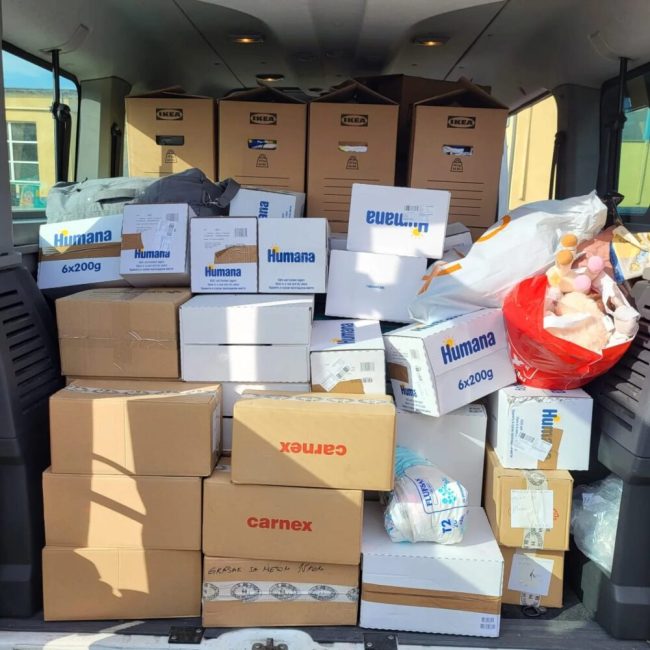
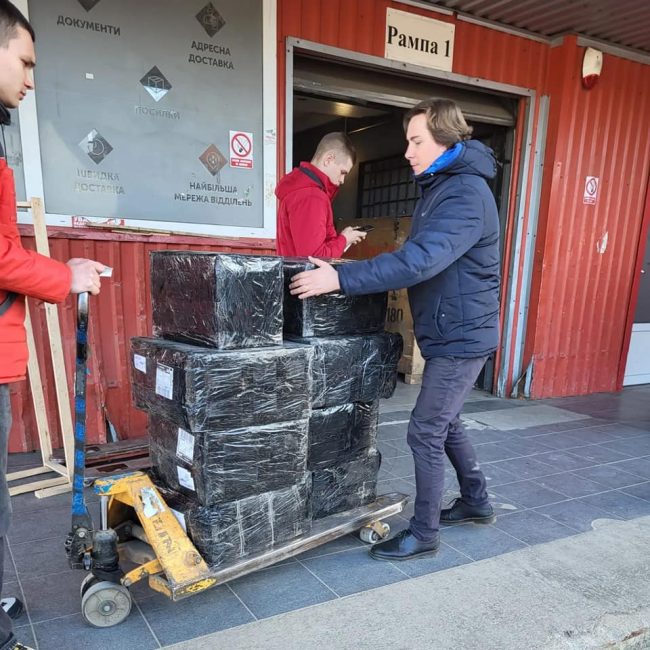
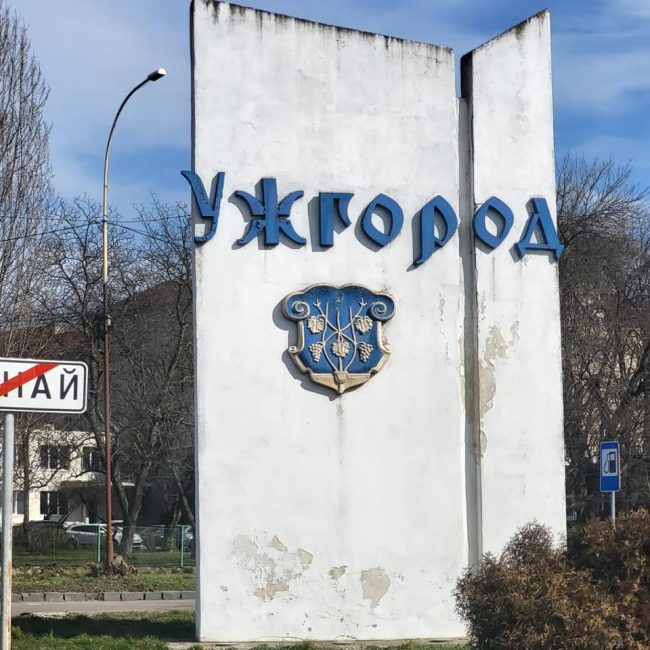
Saturday, March 4, 08:06 local time
We are freezing in Zviahel, where we stopped to rest after a night of driving. Last night, we gathered at a gas station on the outskirts of Uzhhorod at 8:00 PM and set off towards the east in convoy. Over ten hours of continuous driving completely exhausted us, and we welcomed the morning thoroughly worn out and frozen. We slept here in Zviahel for about half an hour, parked in front of the local bus station, on the seats of the SUVs. When we woke up, crumpled and sticky, we mingled with the local stray dogs, observed huge flocks of crows, East European retro buses, scenes from the nearby market, and the city slowly coming to life. In a few minutes, we will continue our journey. We’re heading towards Bucha, Kyiv, Blizhnyukiv, and finally Donbas. To be continued…
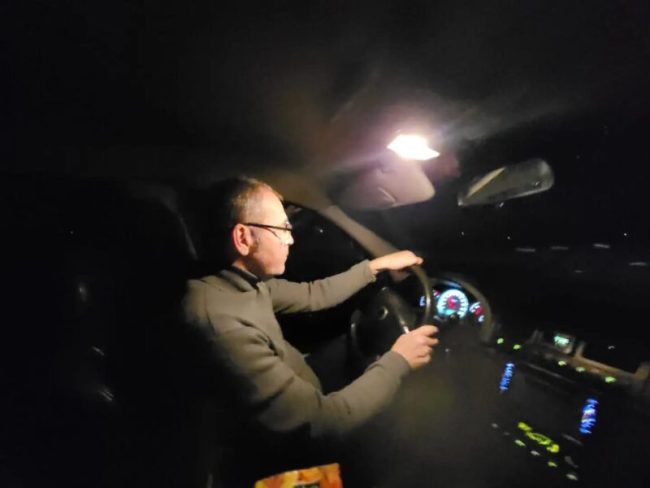
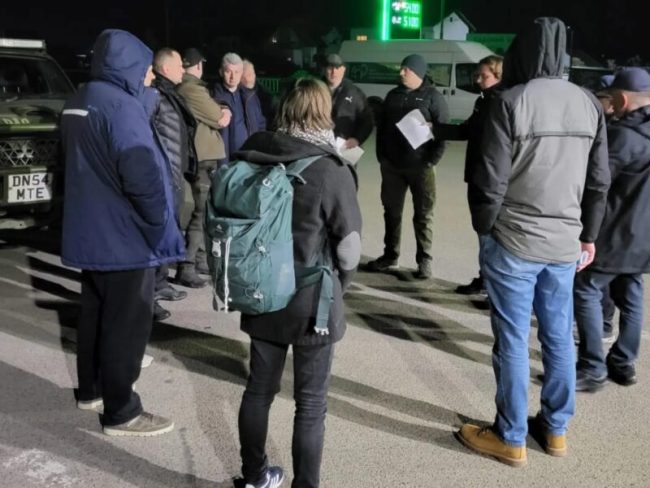
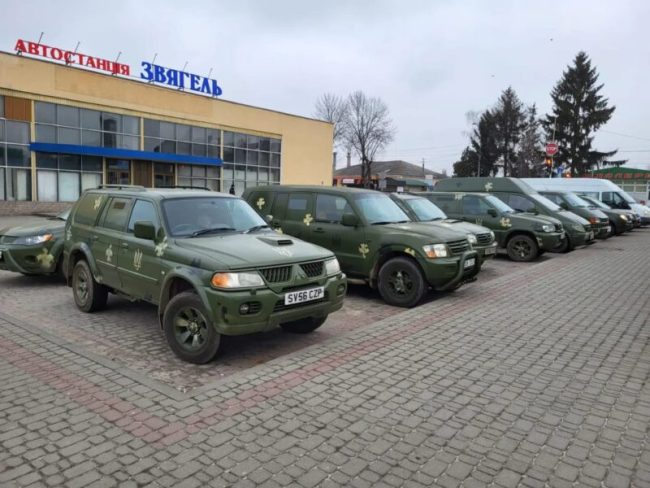
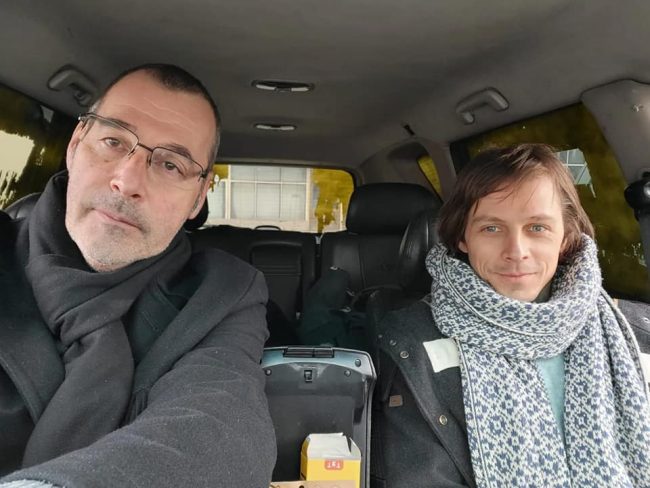
Saturday, March 4, 7:24 AM local time
From Zviahel to Bucha is 215 km, from Bucha to Kharkiv via Kyiv is 520 km, and from Kharkiv to Blizhnyukiv is 170 km. In total, we will cover 905 kilometers today before we reach Blizhnyukiv and the promised beds at the kindergarten. It was unusual to visit Bucha again, a place where 400 innocent people were massacred last year and which has become a symbol of this unjust war, as well as to pass through the outskirts of Kyiv still bearing the painful scars of senseless destruction. Destroyed buildings, anti-tank defenses, and sandbags are literally everywhere – they have become a common, integral part of the landscape of this fascinating country. Kyiv itself is monumental and confidently stretches along the banks of the wide Dnipro River with its elegant buildings and churches with golden domes.
We left the vehicle we had been driving and switched to another one driven by József Makai, a Hungarian journalist from Subotica, our man, who received the most prestigious Hungarian journalism award for a series of reports on the Russian aggression against Ukraine. We are currently somewhere near Poltava, Milan is driving, Vlajsa is in the passenger seat, and József is sleeping behind us. We are approaching Kharkiv, from where we will finally arrive in Blizhnyukiv in the evening to deliver the humanitarian aid from the kind and compassionate citizens of Serbia to the local social center. This is why we have been covering thousands of kilometers non-stop for all these days. Greetings to everyone back home from battered but endlessly brave Ukraine!
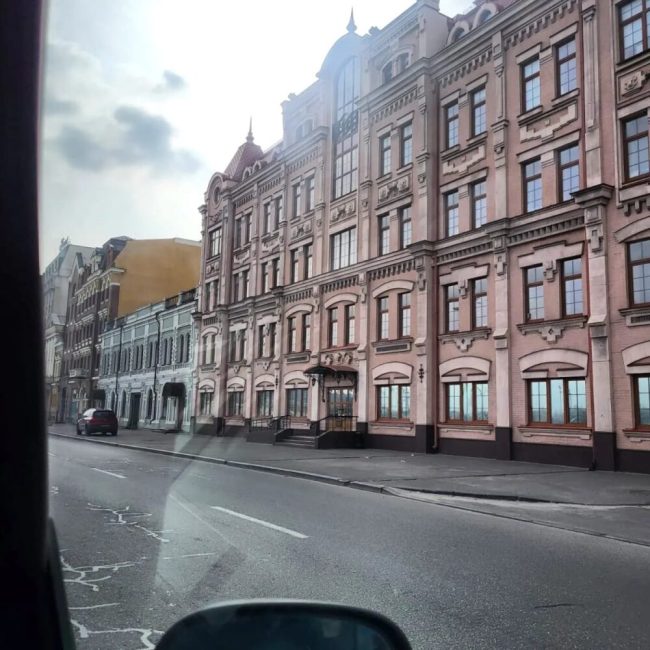
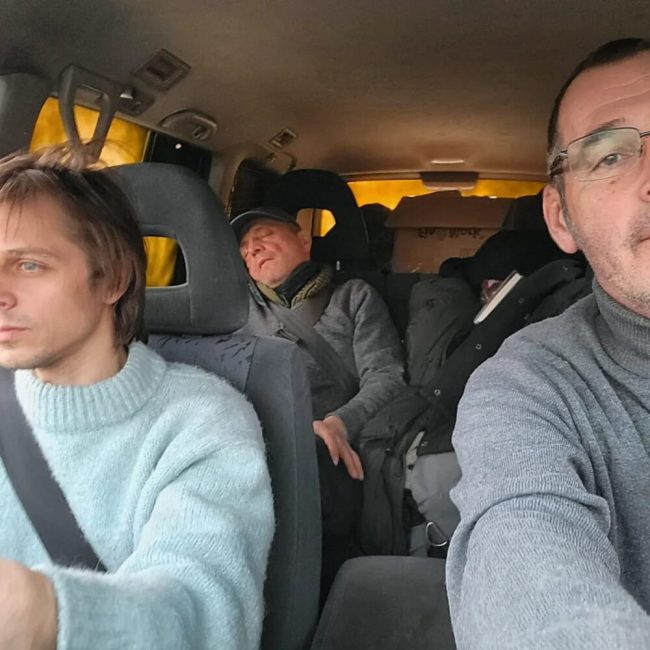
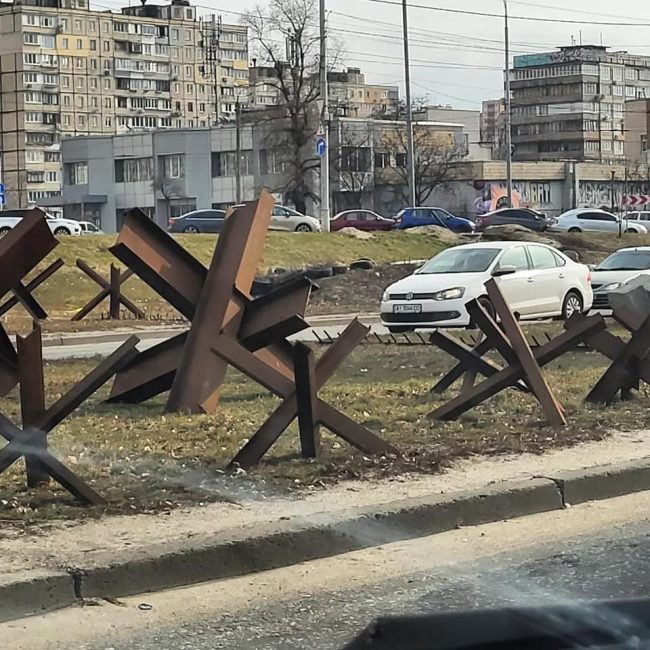
Sunday, March 5, 10:25 AM local time, Blizhnyukiv, Lozova District, Kharkiv Oblastž
Last night, we arrived in Blizhnyukiv, the main goal of our journey, around 11:00 PM. We spent the night in a local kindergarten and were up again at dawn. After a quick breakfast and coffee, we headed to the Social Center to finally deliver the humanitarian aid we had prepared for the beneficiaries of this facility.
There, we were welcomed by the Deputy Head of the Blizhnyukiv Municipality, who thanked us for the assistance provided. Together with the local residents and our convoy team, we unloaded the supplies into the Center’s premises. We then had a deeply moving encounter with the local people who had gathered to greet us.
Blizhnyukiv is located right on the front line, so our meeting and impromptu literary matinee took place during a brief lull between two alerts. In such moments, we truly understand why we are doing this and that it has real, profound meaning.
After many rounds of applause, smiles, exchanged and received gifts, and a group photo, we said goodbye to the people of Blizhnyukiv and moved on towards the recently liberated territory east of the town. We wanted to see firsthand what it looks like when the Russian army “voluntarily leaves occupied territories” and witness the devastation they left behind. But more on that in the next entry.
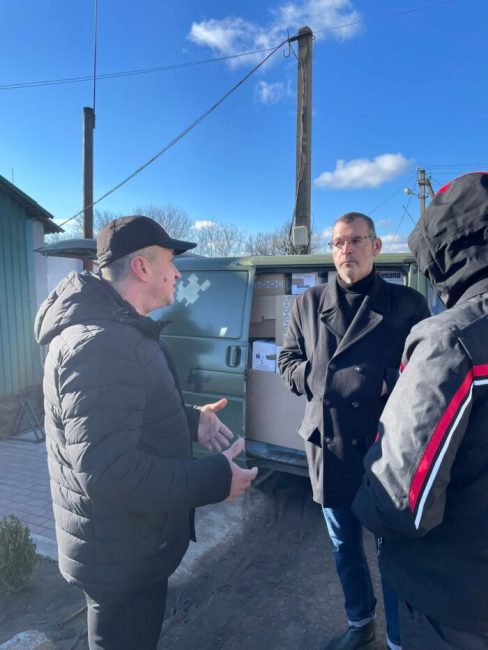
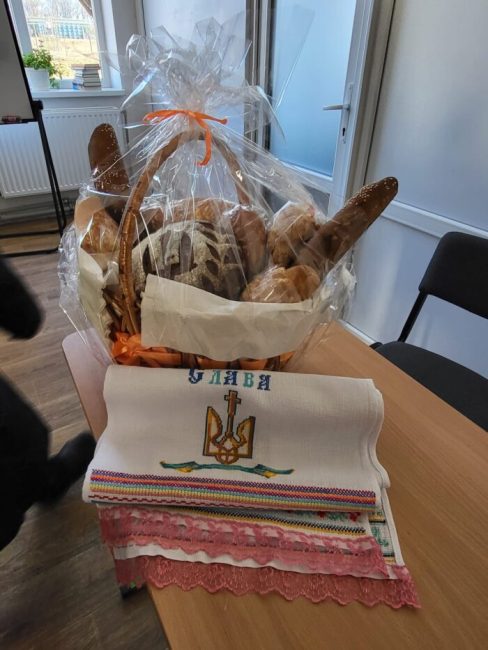
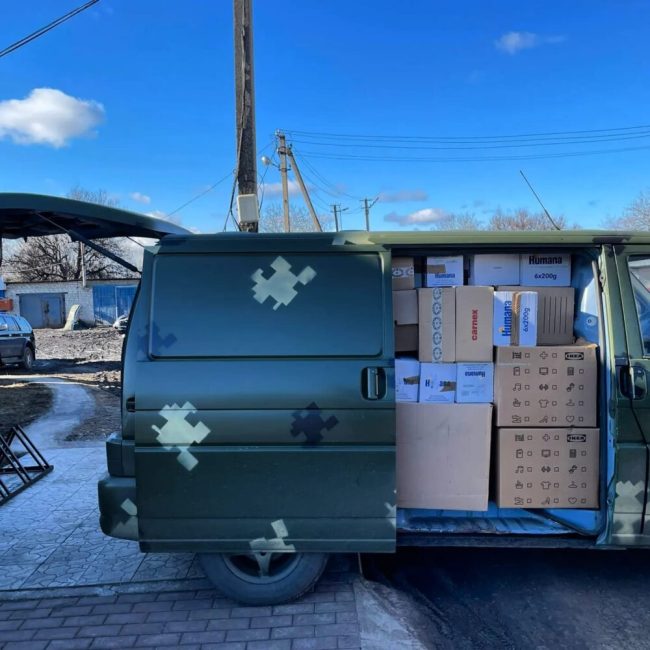
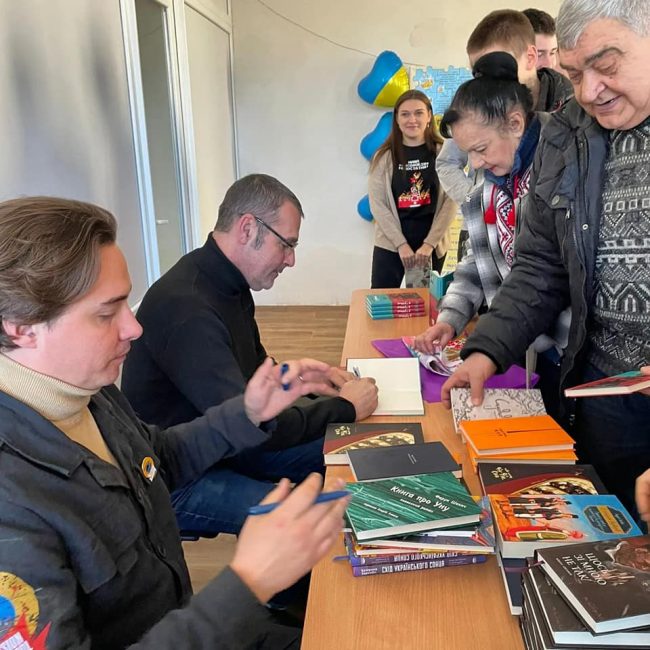
Sunday, March 5, 2:35 PM local time
What we saw along the route from Blizhnyukiv to Izyum is beyond human comprehension. The scale of the devastation left behind by the Russian army before they “voluntarily” left the area is difficult to describe in a short text. Both photographs and footage fall short of conveying the full extent, but any testimony to the evil and its destructive consequences is better than none. It might even reach those who stubbornly refuse to see and hear.
We have crossed from Kharkiv Oblast into Donetsk, passing through Sloviansk and approaching Kramatorsk. But this too will likely require a separate entry.
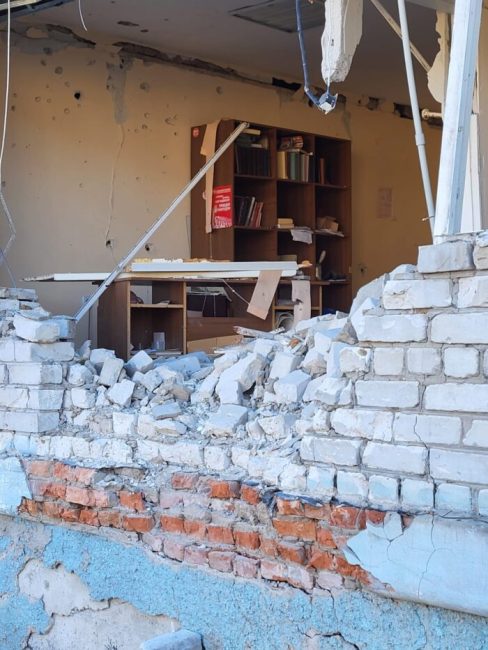


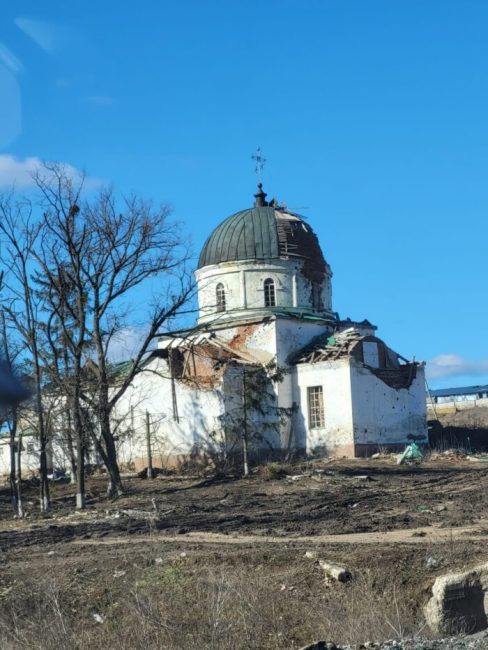
Sunday, March 5, 7:10 PM local time
Do you remember the massacre at the train station in Kramatorsk in April 2022? Over 60 victims, including a large number of children, and over a hundred civilians severely wounded? But life eventually moves on, and today the station building in this city shows almost no sign of the tragedy that occurred here less than a year ago—passersby might easily overlook the small dolls hung on the station fence and the stone on a pedestal inscribed with a promise that a proper monument to the victims of Russian aggression will one day be erected here. One day, certainly, but not yet, not now, while the crimes continue and the victims multiply.
It’s already evening. We are somewhere on the road between Pokrovsk and Pavlohrad, still in Donetsk Oblast. We are jostling and bouncing on the seats on the rutted roads of eastern Ukraine.
We entered Donetsk from the completely devastated Kharkiv Oblast. The scale of destruction here was no less severe. There, in Kramatorsk and Pokrovsk, we donated the last two of ten vehicles to the Ukrainian army, and now, packed into a minibus, we are patiently making our way back west to Uzhhorod. Our journey will take approximately 24 hours, after which we will bid farewell to all the brave and selfless Ukrainian friends with whom we undertook this long journey.
In Donetsk, we passed through Sloviansk, and in Kramatorsk, we enjoyed a phenomenal cappuccino at a hipster café while local kids on skateboards passed by the railway station, the site of the civilian massacre. Ukraine is full of contrasts; they are sometimes touching, occasionally entertaining, but mostly tragic as they reflect the gap between grim reality and the many potentials of a society ready for the future but also (not by its own choosing) trapped in the catastrophic aftermath of an unwelcome past that it would shed if only it could.
The dolls on the fence of the Kramatorsk train station are just one of many reminders that such a thing is still not possible. One day, they say, but not yet, not now, while the crimes continue and the victims multiply.


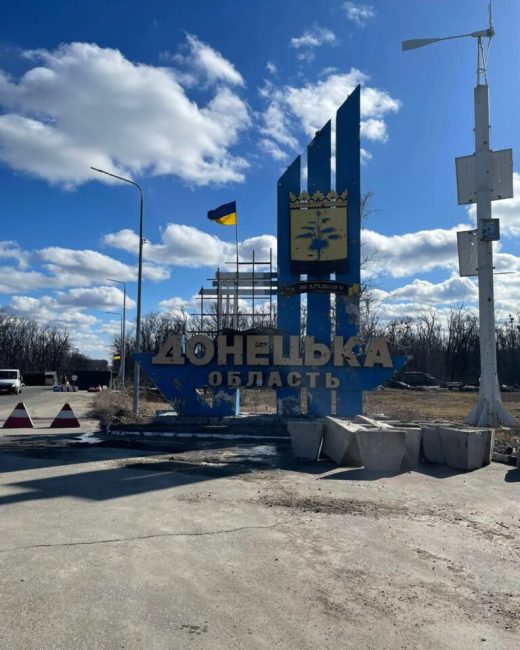
Monday, March 6, just before midnight
…and after everything, we kept traveling and traveling and traveling back westward across the vast country. We crammed together and froze in a dilapidated minibus for a full 24 hours. Day, night, day. We had biscuits and random snacks for breakfast, once we had solyanka, borscht, and sausages with macaroni for lunch, and drank endless coffees from Ukrainian gas stations, which are as numerous in that country as betting shops are in Serbia. Then we patiently squeezed and huddled together again in the broken-down minibus, trying to sleep, stiff and freezing, of course, without success. While we were among the mountains of Galicia, it began to snow, dry and truly wintry, even though it was already out of season. But everything around us is abnormal and upside down anyway: people attacking other people, destroying their homes, churches, schools, hospitals, bridges, and roads, mining their fields and burning trees, so probably in all that, this March snowstorm isn’t so unusual.
In Uzhhorod, we said goodbye to everyone who undertook this humanitarian mission with us and then set off back towards Serbia via Slovakia and Hungary. In just a few days, we traveled 4,500 kilometers to personally visit people living on the front lines, directly exposed to all the horrific consequences of a brutal war of conquest. We visited villages, towns, and cities in the east, devastated beyond recognition, killed and abandoned, and delivered to those we found there warm clothing, canned food, medicines, toys for children, and hygiene supplies. At the same time, we brought 400 books in Ukrainian to Belgrade to at least partly brighten the lives of members of the Ukrainian community. And already, we know that we will not stop there but will continue with similar activities until the aggressor is defeated and unjustly attacked Ukraine is finally free.
We thank all the kind-hearted citizens who helped us in this endeavor, as well as the organizations that supported us and made this journey possible. For a long time, we thought we were alone, and in that sense, we are sincerely glad that you exist. That we exist.
